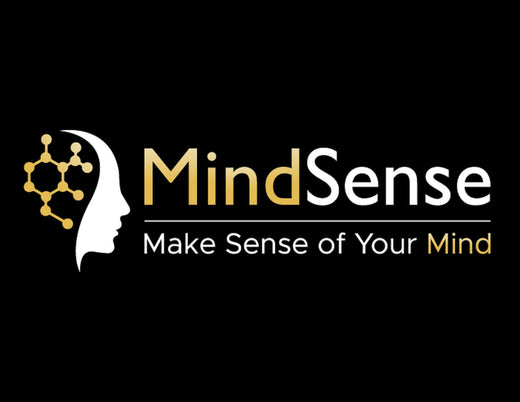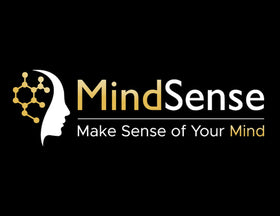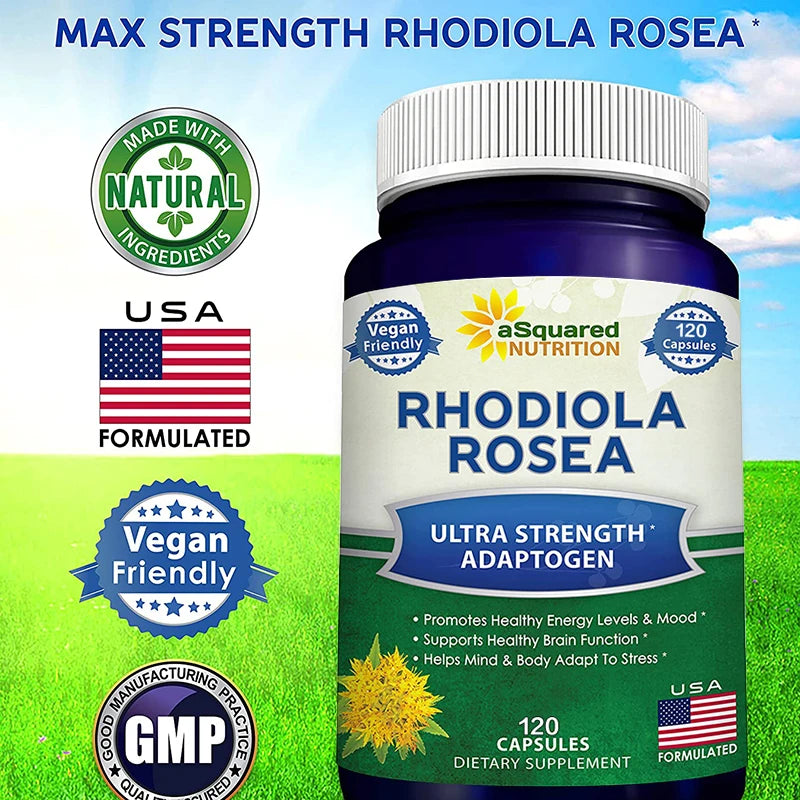The Definitive Guide to Supplements for Better Focus, Memory, and Concentration: Nootropic Supplements that have benefits and those that don't.
Introduction: The Most Effective Ways to Take Vitamins for Cognitive Enhancement
In our fast-paced, information-rich world, it's not uncommon to feel overwhelmed, distracted, or mentally fatigued. Many people struggle with maintaining focus, enhancing memory, and staying sharp, especially in a world where multitasking and constant digital distractions are the norm. This article aims to provide you with a comprehensive guide to supplements that can help boost your focus, memory, and concentration while shedding light on effective strategies to eliminate brain fog.

Understanding Brain Function and How it Relates to Cognitive Behavior
Before we delve into the world of supplements and strategies for improving cognitive function, it's essential to understand how the brain works. The brain is an incredibly complex organ, and cognitive abilities like focus, memory, and concentration are influenced by various factors, including genetics, lifestyle, and overall health. From the chemical interactions between the neurotransmitters in the brain to the electrical communication of neurons and finally how the brain deals with inflammation and junk left over from dying cells, this organ has it's work cut out for it.
That's a lot to take in. But there are natural remedies that we can do on a day-to-day basis to help the brain performs at it's tip-top shape. Below are some examples. Continue reading and you will have a better understanding of what actions you can take and which ones to avoid to increase your sense of calm, while increasing your focus and energy.

1. Sleep: The Foundation of Cognitive Function
Adequate, high-quality sleep is the foundation of optimal cognitive function. Sleep is when the brain repairs itself, consolidates memories, and recharges for the next day. To enhance focus, memory, and concentration, prioritize getting 7-9 hours of restful sleep each night.
2. Diet and Nutrition: Fuel for Your Brain
Proper nutrition plays a vital role in cognitive function. A balanced diet that includes whole grains, lean protein, healthy fats, and plenty of fruits and vegetables can supply your brain with the nutrients it needs to function optimally.
3. Exercise: The Brain-Boosting Elixir
Regular physical activity has numerous cognitive benefits. Exercise increases blood flow to the brain, promotes the release of neurotrophic factors, and enhances cognitive function. Aim for at least 150 minutes of moderate-intensity exercise each week.
4. Stress Management: A Key to Mental Clarity
Chronic stress can negatively impact cognitive function. Effective stress management techniques, such as mindfulness, meditation, and relaxation exercises, can help alleviate stress and improve focus and concentration.
5. Remain Socially Active: A Mood Multiplier
In addition to what happens in our brain, our experiences outside the body also influence our cognitive health. Maintaining a strong social net amongst family and friends, while reducing use of electronic devices, has proven to expand our cognitive abilities dramatically. The key here is quality and not quantity. This will in turn prepare you to be more mindful of yourself and those you associate with.

Supplements for Better Focus, Memory, and Concentration
While lifestyle factors like sleep, diet, exercise, and stress management are foundational for cognitive health, certain supplements can provide a significant boost in focus, memory, and concentration. It's important to note that supplements should complement a healthy lifestyle rather than substitute for it.
Supplements that Don't Work
For starters let's focus on what you see on a day to day basis online, on your TV sets with advertisements of brain boosting supplements or what is commonly referred to as "Nootropic Supplements". To begin your journey, one fact about the brain is that it's the most complex organ in the body. So feeding it a supplement with just one or two ingredients will not have any effect. Our brains need a chemical cocktail of synergistic supplements that actively work to empower each other. One huge advantage of this strategy is that supplements with these types of synergistic nootropic supplements often have a lower dose of each ingredient. This means unintended consequences of side effects of any one of these nootropic supplements is dramatically reduced.
So, lets explore the various options;
1. Fruits and Vegetables as a Nutritional Supplement
The experts at the National Institutes of Health (NIH) and FDA recommend 8 servings of fruits and vegetables per day, with each serving about 4 ounces.
That means you need 32 ounces or 2 pounds of it every day. This translates to about 900 grams of fruits and vegetables per day. Since all of them contain 70-90 percent water (lets say an average of 80 percent), the actual content minus the water is about 20 percent of that or about 180 grams. If we were to extract the water content, we are left with the powder form, this means you would need about 180 grams of powder consumed every day.
Supplements that proport taking 3 capsules (the largest capsule less than one gram) of the powdered form of fruits and vegetables, are telling you that taking it will improve your health. But what does that mean?
If we were to consider the daily intake of just 3 grams would compare to the 180 grams the health experts at the NIH are saying is necessary, there seems to be a disconnect here. That's 60 times less than what is recommended. Do you think it's worth throwing away your hard earned money into something that is only a meager amount of the substance recommended? We didn't think so. So it is best to stick to what we know and along the way you save some money as well.
So, fruits and vegetables in the form of a supplement of 3 grams per day is not in fact beneficial at all.
2. Jellyfish and Seaweed as a Nutritional Supplement
So lets say that studies prove that one individual substance, will provide a cognitive boost to individuals that consume them. That is one substance like extracts from Jellyfish or other sea faring animals. Even existing studies available only provide a 5-10 percent increase in cognitive abilities, which is generally very close to the threshold of the the error rate of 3-5 percent with these studies. So, essentially it is an educated guess at best and at worst a waste of money. With the preponderance of advertisements purporting that a significant improvement will occur by taking this one substance, we feel that it is misleading.
So, Jellyfish extracts or similar substances as a nootropic nutritional supplement falls way short of the claims that are being made and we rate this claim to fall way short of the benefits being claimed.
Nootropic Supplements that do work
Again to reiterate; We are not claiming any one substance outlined below is the holy grail of multivitamins that benefit the brain and body. The following list is only a reference to help you better decide which combinations of these ingredients are the right ones for you individually. The key is the combination and synergistic effects of these ingredients together. Sort as the saying goes; "The Whole is Better than the Sum of it's Parts".
The key here is that no one ingredient by itself has much of an effect on our cognition. It is how they are combined and whether or not they multiply each others effects, essentially being synergistic.
1. Omega-3 Fatty Acids
Omega-3 fatty acids, particularly eicosapentaenoic acid (EPA) and docosahexaenoic acid (DHA), are essential for brain health. They can be found in fatty fish like salmon, mackerel, and sardines. Omega-3 supplements are often recommended for their cognitive benefits, including improved memory and concentration. They help maintain the integrity of brain cell membranes, support neuroplasticity, and reduce inflammation.
2. Bacopa Monnieri
Bacopa monnieri, also known as Brahmi, is an herb traditionally used in Ayurvedic medicine for enhancing cognitive function. Studies have shown that Bacopa may improve memory, attention, and cognitive performance. It is thought to work by enhancing the communication between nerve cells in the brain.
3. Ginkgo Biloba
Ginkgo biloba is a popular herbal supplement that has been used for centuries to support cognitive function. It is believed to enhance memory and concentration by increasing blood flow to the brain and promoting better oxygen utilization. Ginkgo biloba is often recommended for individuals looking to combat brain fog.
4. Rhodiola Rosea
Rhodiola rosea is an adaptogen that helps the body adapt to stress and maintain optimal cognitive function. It is thought to reduce fatigue, increase mental alertness, and improve focus and memory. Rhodiola may also have a positive impact on mood and overall mental clarity.
5. Panax Ginseng
Panax ginseng, also known as Korean ginseng, is an herbal remedy believed to improve cognitive function. It may enhance memory, attention, and overall mental performance. Ginsenosides, the active compounds in Panax ginseng, are thought to have a positive influence on brain health.
6. Caffeine
Caffeine is a well-known stimulant that can enhance focus and concentration. It works by blocking adenosine, a neurotransmitter that promotes relaxation and sleepiness. However, it's important to consume caffeine in moderation and be aware of its potential side effects, including jitteriness and sleep disturbances.
7. L-Theanine
L-Theanine is an amino acid found in tea leaves, particularly green tea. When used in combination with caffeine, it can improve attention and focus while reducing the jitters and anxiety associated with caffeine alone. L-Theanine promotes relaxation without drowsiness.
8. Vitamin B Complex
Vitamins in the B complex, particularly B6, B9 (folate), and B12, are essential for brain health. They are involved in processes like neurotransmitter production and the maintenance of myelin, a substance that insulates nerve cells. A deficiency in these vitamins can lead to cognitive impairment.
9. Antioxidants/Minerals
Antioxidants, including vitamins C and D, as well as compounds like resveratrol and curcumin, can protect the brain from oxidative stress and inflammation. By reducing cellular damage, antioxidants may help preserve cognitive function. Iron and Copper provide the energy and oxygen to cells for proper interaction and should also be a vital part of any nootropic nutritional supplement.
10. Phosphatidylserine
Phosphatidylserine is a naturally occurring phospholipid found in high concentrations in the brain. It is thought to enhance cognitive function, particularly memory and attention. Some studies suggest that phosphatidylserine supplementation can be particularly beneficial for individuals with age-related cognitive decline.

Ways to Remove Brain Fog
Brain fog can be a frustrating and persistent condition that hampers cognitive function. In addition to the supplements mentioned above, there are several strategies you can employ to banish brain fog and regain mental clarity:
-
Hydration: Dehydration can lead to brain fog and impaired cognitive function. Make sure you're drinking enough water throughout the day.
- Reduce Stress: Chronic stress can contribute to brain fog. Practice stress-reduction techniques like meditation, deep breathing, or yoga.
- Prioritize Sleep: Poor sleep quality and insufficient sleep can lead to cognitive impairment. Make sleep a priority and establish a consistent sleep schedule.
- Dietary Changes: Some people find that dietary modifications, such as reducing sugar and refined carbohydrates, can help alleviate brain fog.
- Exercise Regularly: Physical activity increases blood flow to the brain and can help clear away mental cobwebs.
- Mindfulness and Meditation: These practices can improve your ability to focus and reduce mental clutter.
- Organize and Prioritize: A cluttered physical environment and an overloaded to-do list can contribute to mental confusion. Keep your surroundings and tasks organized.
- Limit Distractions: Minimize digital distractions like excessive smartphone use and social media. Use apps and techniques to help you stay focused.
- Cognitive Training: Engage in activities that challenge your brain, such as puzzles, games, or learning a new skill.
- Professional Help: If brain fog persists and significantly impacts your life, consult a healthcare professional to rule out any underlying medical conditions.
Conclusion: A Holistic Approach for Banishing Brain Fog, While increasing Focus and Memory
Achieving better focus, memory, and concentration while banishing brain fog involves a holistic approach that combines lifestyle changes, cognitive training, and the use of supplements. While supplements can be valuable tools to enhance cognitive function, it's crucial to maintain a balanced lifestyle that prioritizes factors like sleep, diet, exercise, and stress management. Consulting with a healthcare professional before starting any supplement regimen is essential to ensure safety and effectiveness. By following the strategies outlined in this guide, you can take proactive steps to improve your cognitive abilities and enjoy a sharper, more focused mind.





Leave a comment